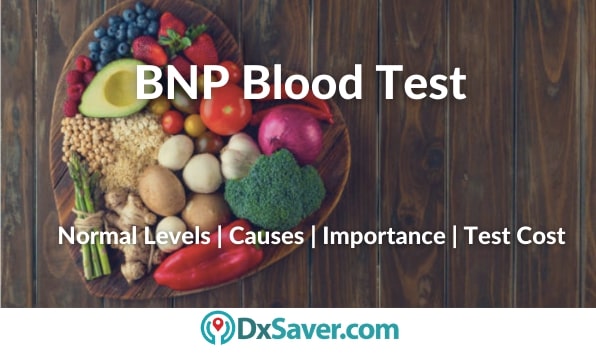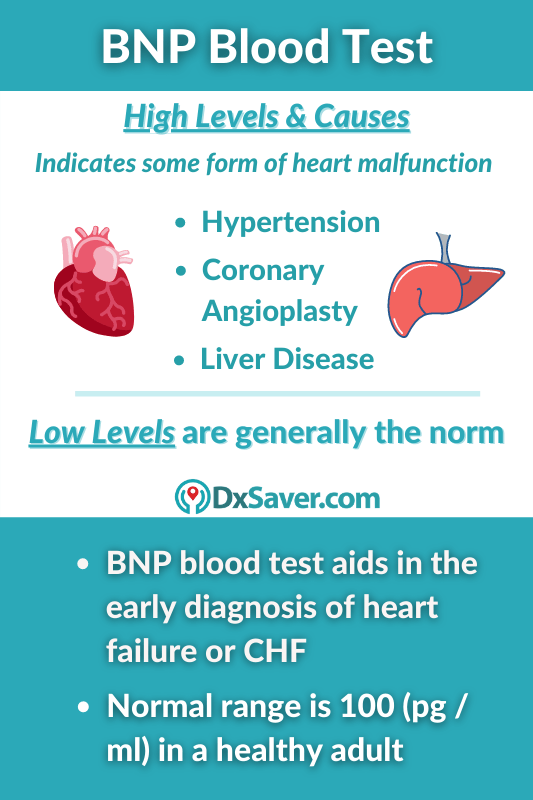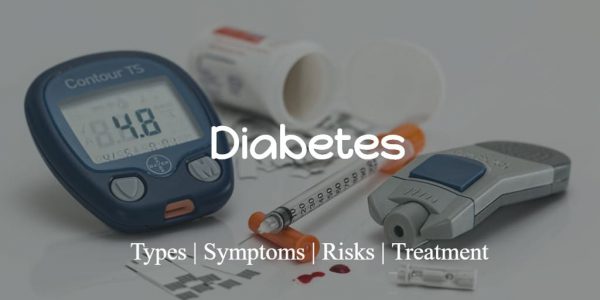
B-Type Natriuretic Peptide is the full form of BNP. It is an amino acid polypeptide secreted by the heart. BNP test is done to evaluate your BNP levels in your blood. BNP blood test helps in diagnosing heart-related problems such as heart failure. Typically, your BNP levels tend to elevate when you have severe heart failure.
BNP blood test is taken as a periodic test if you are a heart patient and to keep a check on how well your heart is pumping and provides overall insights about your heart health. In this article, we explain in detail all the significant queries asked about the BNP blood test, BNP normal levels by age, BNP normal test values & more.
- BNP Blood Test Cost
- What is the BNP blood test?
- What is BNP in blood & why is it important?
- How is the BNP blood test performed?
- Is there any preparation required before the Test?
- Are there any risks in the BNP blood test?
- BNP blood test results explained
- BNP blood test: High
- BNP blood test: Low
- How to improve low BNP levels in your blood?
- How to reduce high BNP levels in your blood?
- Providers Locations
For our readers, who are very much interested in knowing the BNP Blood test cost beforehand, we would like to begin with that section.
BNP Blood Test Cost
The cost of the BNP blood test ranges between $99 and $131 in different labs and facilities across the U.S. No prior appointment is required. Compare the price, order your test online and visit the nearest lab during lab business hours. Complete the procedure and get the results in your email in 2 to 3 business days. Doctor consultation is also available for further treatment or for any kind of medical advice.
The following table shows the BNP blood test cost at 2 of our partner laboratories (CLIA – Certified) network located across the U.S.
Name of our Partner Labs | Book Online |
HealthLabs
| Offer Price$99 |
Personal Testing Labs
| Offer Price$131 |
Cost of BNP blood test cost with insurance
Many health insurance policies in the U.S. do not cover the cost of the BNP blood test. If your physician recommends you to take a BNP blood test more than twice a year, you may have to pay the medical bill out of pocket. Also, the coverage offered by private health insurance policies and national health insurance programs varies widely. So we recommend you to check with your insurance company.
Our BNP blood testing providers do not accept any health insurance. But, on request, they can provide you with a receipt containing all the details like the name and code of the test, and CPT code which is necessary for insurance reimbursement purposes.
What is the BNP Blood Test?
B-type natriuretic peptide (BNP) is an important heart hormone that needs to be present at the required amount for healthy heart functioning. a BNP blood test is ordered to measure your BNP levels.
BNP and atrial natriuretic peptide (ANP) which is another hormone similar to BNP, both have an important job of keeping your arteries and veins widened. This helps your blood to flow through easily without any blockage or prevents any clots from forming. Apt levels of BNP and ANP hormones also help in better functioning of your kidney by easily removing fluid and salt from your body.
Congestive heart failure, also known as CHF is a medical condition where your heart cannot pump enough blood throughout your body because the ventricles (walls of the heart chamber) have become too weak or contracted. As a consequence, your heart will experience a change in pressure and fluid levels. In this scenario, your heart starts secreting more BNP to help regulate the blood pressure and other fluids in your heart.
Thus BNP acts as a vasodilator and has diuretic and natriuretic properties. When your heart has difficulty pumping, BNP is produced in more quantity. These healthy side effects help reduce intraventricular pressure and improve congestive heart failure (CHF) symptoms.
What is BNP in blood & why is it important?
BNP, B-Type Natriuretic Peptide is a protein-like hormone produced by your heart as a response to excessive stretching of the heart’s muscle cells. High BNP levels indicate heart failure and help to assess the severity of heart failure.
Your physician may recommend a BNP blood test if you experience shortness of breath or any of the following heart failure symptoms –
- Abnormally high or irregular heart rate
- Coughing a lot, and producing white or pink phlegm
- Feeling exhausted or weak for no apparent reason
- Rapid weight gain without a change in diet or activity
- Inability to concentrate or remain alert
- Nausea or having no appetite
- Trouble breathing
This BNP test aids in the early diagnosis of heart failure, detecting heart failure at an early stage, so that effective treatment will be taken to prevent any further complications of CHF.
Other than congestive heart failure (CHF), the BNP levels elevate in the following health conditions –
- Left ventricular hypertrophy,
- Acute myocardial infarction,
- Coronary angioplasty,
- Hypertension,
- Pulmonary hypertension (indicating right ventricular dysfunction),
- Acute lung injury,
- Hypervolemic states,
- Kidney malfunction,
- Chronic renal failure, and
- Liver Cirrhosis.

How is the BNP blood test performed?
As the name suggests, the BNP Blood test is a simple blood test. During this test, a lab technician or a phlebotomist will cleanse the skin with an antiseptic and place an elastic band around the upper arm so that the vein becomes visible and swells with blood. He/she then injects a needle and draws a sample of blood in a test tube. After the blood is drawn, he covers the injected area with a band-aid to stop bleeding. The typical blood specimen is then sent to the lab for analysis.
It takes less than 10 minutes to perform this test.
Is there any preparation required before the Test?
There is no special preparation required for the BNP Blood test, however, if you are taking high-dose biotin drugs (also known as vitamin B7 supplements), then you’ll be asked to wait for 24 hours after you have taken the last biotin dose before sample collection, as it may influence the BNP levels. Other than these, you can continue with your regular activities and diets.
Are there any risks in the BNP blood test?
There is no possible risk or complication in taking the BNP blood test. You might have slight pain or bruise in the injected area for a very little period.
BNP blood test results explained
Generally. normal BNP levels are lower than 100 picograms per milliliter (pg/ml). This level will increase when heart malfunction symptoms worsen and decrease when your heart health is back normal. However, normal BNP levels vary according to age and sex. The following table depicts the normal BNP levels as humans age –
Normal BNP levels by age and sex
| Age | Normal BNP Levels in Men | Normal BNP Levels in Women |
| Below 45 years | 35 pg/ml or below | 64 pg/ml or below |
| 46–60 years old | 36–52 pg/ml | 46–60 pg/ml |
| 61–82 years old | 53–91 pg/ml | 96–163 pg/ml |
| Older than 83 | 93 pg/ml or below | 167 pg/ml or below |
BNP blood test: High
If your BNP blood test shows high levels, that is more than the above mentioned normal levels according to your age and sex, then it indicates heart failure. However, the BNP levels can be lowered back to normal with the help of some medications and lifestyle changes.
How to reduce high BNP levels in your blood?
As humans age, the heart tends to weaken and starts to malfunction. Improving heart health or keeping a good lifestyle to maintain a healthy heart is very important. Following are some lifestyle techniques to help reduce your heart failure –
- Quit smoking
- Stop consuming alcohol altogether
- Lose weight
- Relieve stress through yoga or meditation
- Exercise regularly for at least 20 to 30 minutes a day
- Get 7-8 hours of tight sleep every night
If your condition is severe, along with the lifestyle changes your physician may recommend the following medications to help reduce the high BNP levels
- Taking diuretics to help you excrete more fluid out of your body
- Reducing or stopping your use of nonsteroidal anti-inflammatory drugs (NSAIDs) for pain
- Treating high blood pressure and diabetes
- Prescribing medication for heart failures such as angiotensin-converting enzyme (ACE) inhibitors or beta-blockers.
- Getting operated for coronary bypass or heart-valve repair, or inserting a pacemaker, if needed
- Using a sleep apnea machine if you are experiencing shortness of breath during the night.
BNP blood test: Low
If your BNP test results show low BNP levels, then it doesn’t indicate any medical conditions. Low BNP levels mean your heart health is perfect and you do not have any heart failure condition. Sometimes, decreasing BNP levels might be a therapeutic response to anti-hypertensive therapy, if you’re taking any.
Providers Locations
The BNP blood test can be done in any of the following locations across the U.S. by visiting the nearest lab. To know the BNP blood test cost, refer to the first section of the article.
- Alabama
- Arizona
- Arkansas
- California
- Colorado
- Connecticut
- Delaware
- Florida
- Hawaii
- Georgia
- Idaho
- Illinois
- Indiana
- Iowa
- Kansas
- Kentucky
- Louisiana
- Maine
- Michigan
- Minnesota
- Mississippi
- Missouri
- Montana
- Nebraska
- Nevada
- New Hampshire
- New Mexico
- North Carolina
- North Dakota
- Oklahoma
- Oregon
- Pennsylvania
- Puerto Rico
- South Carolina
- South Dakota
- Tennessee
- Texas
- Utah
- Vermont
- Virginia
- Washington
- West Virginia
- Wisconsin
- Wyoming
Frequently Asked Questions
Will insurance cover my testing cost?
No, insurance will not be covered in the billing. However, they will provide you a receipt for insurance reimbursement purposes.
How should I book my appointment?
You can choose the most suitable provider from above and make an appointment by following the instructions mentioned by them.
Can I cancel my lab test order?
Yes, you can cancel your lab test order anytime before your testing. A refund will be initiated after deducting the cancellation fee. However, cancellation is at the discretion of the provider.
Do the providers offer result interpretations?
Yes, a few providers may provide doctor consultation who will take you through the results and provide clarification if needed.
How do I receive my report?
To ensure your privacy, the test report will be mailed to you by the provider.
Other topics you may be interested in:-
- H Pylori Test Cost
- LDH Test Cost in the US
- What is Mycoplasma Bacterium?
- Is Itching a Symptom of STD?
- Signs and Symptoms of Oral Syphilis
- Symptoms of TB and How much does Quantiferon Gold TB Blood Test Cost?
- What is Mono Disease and is it a type of STD?
- STD Testing Cost in Las Vegas
- What are the types of Skin Cancer?
- Progesterone Fertility Testing in the US
- What are the Early Symptoms of Throat Cancer?
- What is the MCHC in a Blood Test?
- C-Peptide Normal Levels, Test Results & Treatment
- Types of STDs that cannot be cured
- Oral STDs: Names, Symptoms, Treatment and Testing Cost
- Herpes Vs. HPV: Differences, Symptoms, and Testing Cost
- Types of STDs That Cause Mouth Sores Symptoms in Men and Women
- Do STDs cause Blood in Urine? Know more on Other Symptoms of STDs
- Cost of Planned Parenthood STD Testing Vs. Other Labs/Clinics Near You






